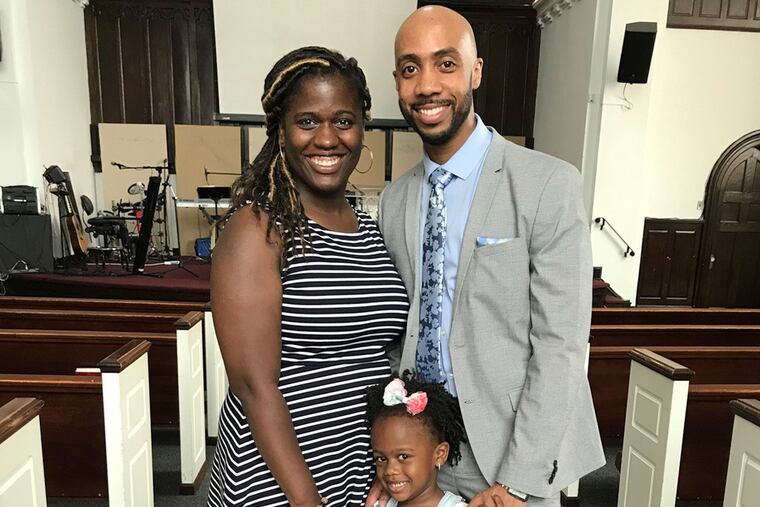‘I’m living for more than myself’: One dad’s commitment to good health on Father’s Day | Opinion
Created in collaboration with the Mayor’s Office of Black Male Engagement, the Mayor’s Commission on African American Men and the Philadelphia Department of Public Health, the report states that life expectancy is the lowest among black men and boys due to violence, heart disease, cancer, and drugs.

On Father’s Day, I can’t help but reflect on the life of my late father, Eric Westbrook Sr. At age 45, my father suffered a massive heart attack that would eventually lead to severe brain damage and his last 11 years of life spent in an anoxic coma. I can’t help but remember my mother telling me how much she begged him to go to the hospital when he complained about chest pains. He passed away in December of 2016 at age 56.
Eric Sr. was a father of four, a committed husband, faithful pastor, dependable employee, and loyal son. He worked tirelessly to balance all of his roles and responsibilities — everything except his own health. I remember him telling me whenever he would get sick that he would just “drink a lot of fluids and keep moving.” No matter how bad it was, he always assured us that it would eventually pass. Eating fast grew “more convenient” than ever and exercise was just “too time-consuming.”
Recently, the City of Philadelphia released Brotherly Love: Health of Black Men and Boys in Philadelphia. Created in collaboration among the Mayor’s Office of Black Male Engagement, the Mayor’s Commission on African American Men and the Philadelphia Department of Public Health, the report states that life expectancy is the lowest among black men and boys due to violence, heart disease, cancer, and drug overdoses. From poverty, economic and educational disadvantages at disproportionate rates, being overexposed to community violence and trauma, racism, racial profiling, and mass incarceration — the report draws clear correlations to these adverse physical and mental health outcomes.
The report also suggests that the history of discrimination in the health-care system has left many black men wary of seeking care and following recommendations from providers who are not known and trusted, which can limit access to care and worsen health outcomes. These challenges make it very difficult for black men and boys to trust our health-care system.
Our next steps over the coming year will be engaging black and brown men throughout the city around the findings of the report, and working with our Public Health Department to encourage more black and brown men to get annual wellness checks. Moving forward, we will explore how engaging additional community stakeholders to address systemic issues within the medical and health-care fields -- like exposing black and brown students to careers in medicine, and working with our health-care systems to strengthen, support, and clear pathways for more diverse participation in medical schools and residency programs.
My daughter has my father’s dimples. She’s a constant reminder that I’m living for more than myself. I want to be a superhero for my daughter, as my father was for me. But even Superman had a fortress of solitude for self-care. In recent years, I’ve had to change my own thinking regarding my health and wellness. It’s not inconvenient or weak. It’s vital. My wife makes sure I schedule a physical examination every year and I’ve changed my diet drastically over the last 15 years. I see the value of my health in a new way and I not only want to get things done, I want to be around to enjoy them as well.
This Father’s Day, encourage your father to visit a doctor or health-care center for an annual checkup.
Eric Westbrook Jr. is the director of the Mayor’s Office of Black Male Engagement